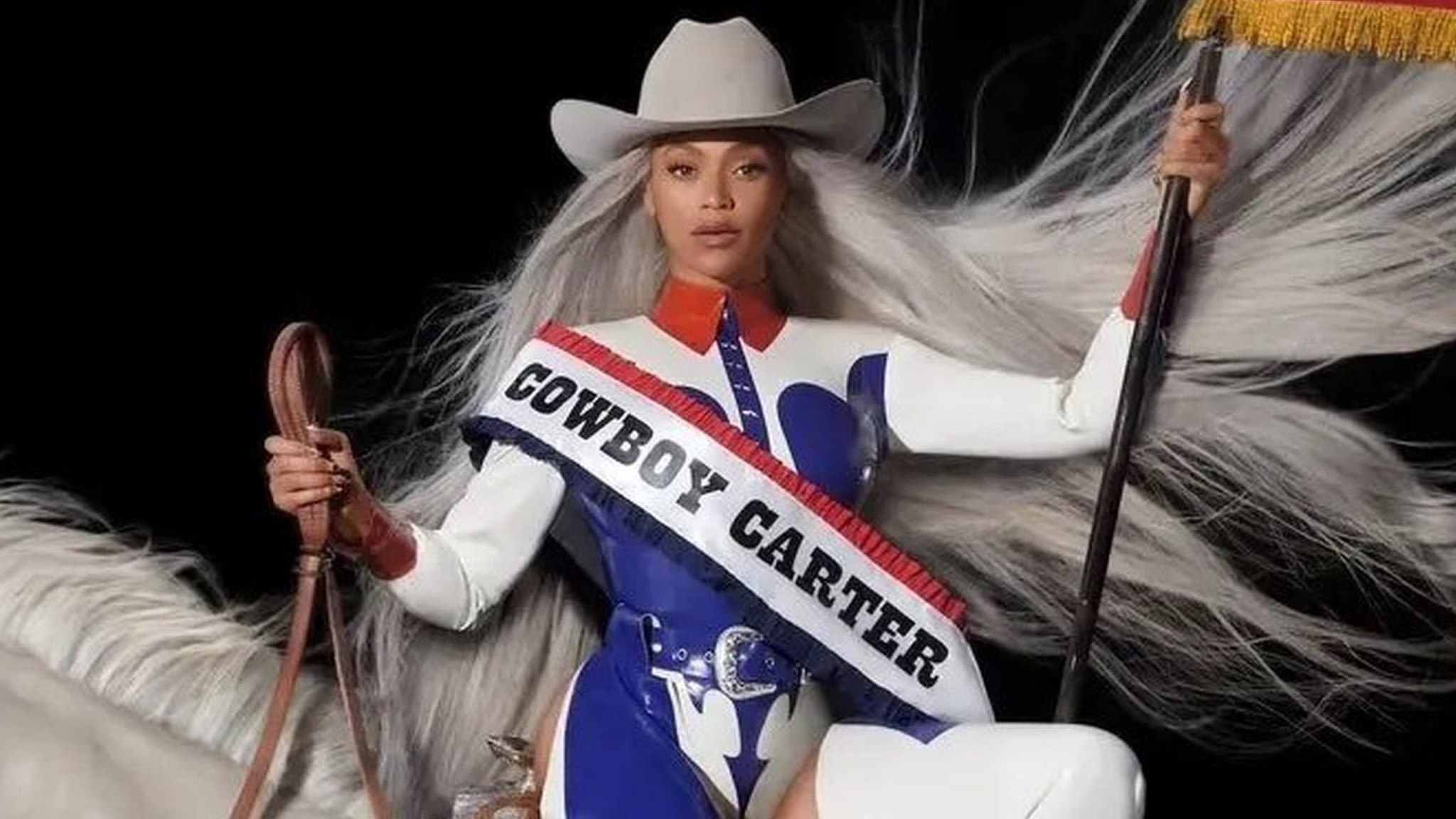In a surprising turn of events, Beyoncé finds herself at the center of financial speculation following the launch of her latest endeavor, the “Cowboy Carter” country album. Reports suggest that the album’s reception has led to a significant financial downturn, resulting in an estimated loss of nearly $550 million for the music mogul. Let’s delve into the details to understand this intriguing development and its potential implications.

The launch of Beyoncé’s “Cowboy Carter” album was met with considerable anticipation and curiosity. Known for her versatile artistry and boundary-pushing creativity, Beyoncé’s venture into country music raised eyebrows and generated buzz across the music industry. Fans and critics alike awaited eagerly to see how the global icon would interpret the traditional genre.
However, despite the initial excitement surrounding “Cowboy Carter,” the album’s performance has reportedly fallen short of expectations, resulting in a notable financial setback for Beyoncé. Industry analysts attribute this downturn to a combination of factors, including mixed critical reception, shifting consumer preferences, and unforeseen market dynamics.
One of the primary challenges facing “Cowboy Carter” was the divergence from Beyoncé’s established fan base and musical style. While Beyoncé’s foray into country music was intended to showcase her versatility and broaden her audience, it appears to have encountered resistance from her core supporters, who may have preferred her signature R&B and pop sound.
Moreover, the country music landscape is notoriously competitive and deeply rooted in tradition, posing additional hurdles for a crossover artist like Beyoncé. The album’s departure from conventional country themes and aesthetics may have alienated purists while failing to fully resonate with mainstream audiences.

The financial implications of “Cowboy Carter” extend beyond album sales, impacting Beyoncé’s broader business empire and endorsements. The reported $550 million loss reflects a combination of reduced album revenues, diminished brand appeal, and potential setbacks in lucrative partnerships.
It’s important to note that financial fluctuations are not uncommon in the music industry, where success can be fleeting and subject to unpredictable trends. Beyoncé’s career is characterized by resilience and adaptability, and she has navigated challenges with grace in the past.
In response to the album’s reception, Beyoncé’s team has emphasized the artist’s commitment to artistic exploration and creative risk-taking. While “Cowboy Carter” may not have achieved commercial success on the scale of Beyoncé’s previous projects, it represents a bold experiment in genre-bending and artistic evolution.
As the music industry continues to evolve, Beyoncé’s experience with “Cowboy Carter” offers valuable insights into the complexities of artistic reinvention and the ever-changing dynamics of consumer taste. The album’s legacy may ultimately lie not in its financial impact but in its contribution to Beyoncé’s artistic journey and legacy.
Looking ahead, Beyoncé’s fans remain eager to see what new creative endeavors the artist will pursue. Whether she returns to her roots or ventures into uncharted territory, Beyoncé’s influence and impact on music and culture are undeniable.
In conclusion, the financial ramifications of Beyoncé’s “Cowboy Carter” country album underscore the risks and rewards of artistic experimentation in the music industry. While the album may not have achieved commercial success, it represents a bold chapter in Beyoncé’s storied career and highlights the complexities of genre exploration in a rapidly changing musical landscape. As Beyoncé navigates this chapter with characteristic grace, her artistic legacy continues to inspire and captivate audiences worldwide.
News
Paige Spiranac, a former professional golfer turned influencer, has found immense success in her career as a social media influencer, model, and media personality. With 3.9 million Instagram followers and 1.5 million on TikTok, she has become a prominent figure in the online world.
Paige Spiranac flattered to inspire others, including copycats, in Social Media success In a recent interview with The U.S. Sun at The SI Invitational, Spiranac expressed her…
Golf influencer Paige Spiranac knows exactly what some people think of her, and she had the perfect response ready for those critics.
Paige Spiranac posts brilliant response to sexist critics who think she does not know how to golf She played dumb in order to prove her point The Instagram…
PAIGE SPIRANAC delighted fans with her latest social media post.
The golf influencer loves to upload snaps of herself from various courses around the world. 28 Paige Spiranac posed in a figure-hugging black dressCredit: https://twitter.com/PaigeSpiranac 28 Fans love…
Paige Spiranac fans left distracted as she teases curves in busty outfit
Instagram influencer and golfer Paige Spiranac gave her fans an eyeful in her latest post. Paige Spiranac shares golf tutorial Fans of golf star and social media…
Crowned The King Of R&B, Chris Brown Has Amassed A 2024 Net Worth Of $50 Million
Chris Brown is an iconic and well-known singer, songwriter, actor and world-class dancer. Working since he was 16, Brown has continued to thrive within the entertainment industry and…
NFL fired Beyoncé after just 2 minutes on stage for singing ‘Alternative National Anthem’ at NFL.
In a world where celebrities often tread lightly around political and social issues, global superstar Beyoncé has never been one to shy away from making a statement….
End of content
No more pages to load











